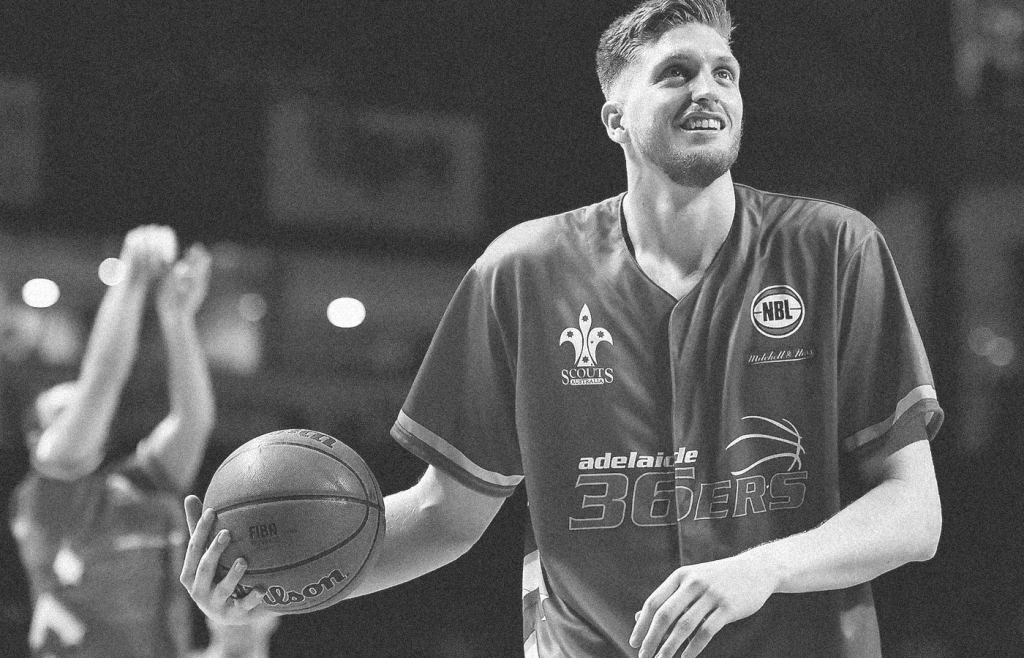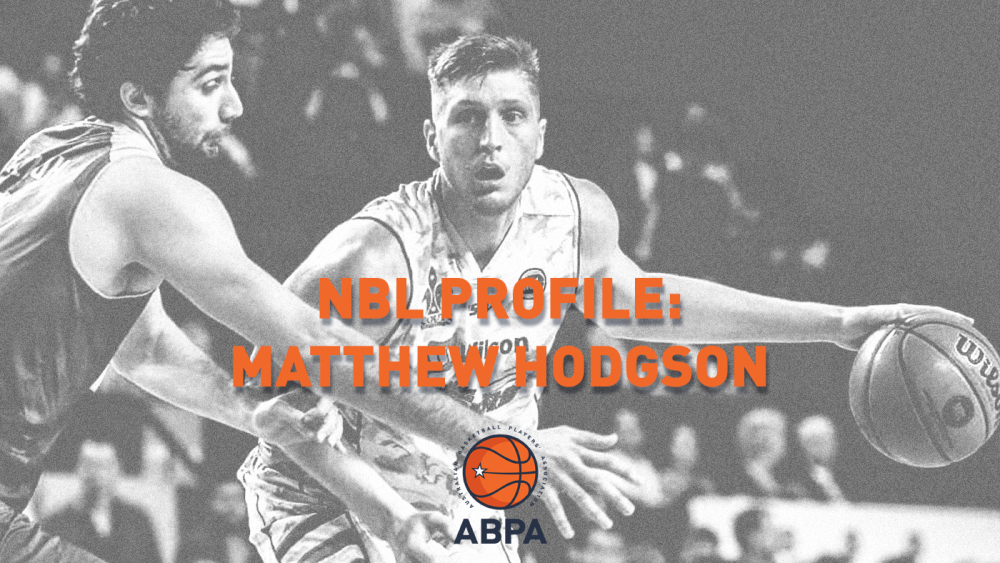Originally from Queensland, Matthew Hodgson has returned to his roots with the Brisbane Bullets for the past two NBL seasons, after enjoying three seasons with the Adelaide 36ers and an overseas college career.
The 211cm centre played college ball with Southern Utah University and Saint Mary’s College of California between 2009 – 2014, in addition to his continued positive development on the court, Hodgson has dedicated equal energy in developing himself off the court.
In this Q&A with the ABPA, Hodgson shares his views on personal and professional development and the importance of planning for life after basketball.
ABPA: How has the start to the NBL season been for you personally and for the Bullets?
MH:Four of our first five games are on the road for us to start, which gives the team a good chance to bond together and gel quickly.
ABPA: How is your body feeling at the moment?
MH: I’m still recovering from an injury that I sustained in our last preseason game. Outside of that, it’s the best my body has felt in my professional career.

ABPA: How have you generally approached your development off the court?
MH: I have always tried to utilise my spare time after practices to further myself. As an athlete, there is only so much physical training you can do, especially in season. This is exactly why I think I will be able to juggle both a full-time professional sporting schedule with part-time study.
ABPA: Can you tell us a little bit about your education outside of basketball?
MH: I graduated from Saint Marys College of California in 2014 with a degree in general psychology.
ABPA: You are interested in psychology and sport psych – can you tell us a little bit about your studies so far?
MH: I’ve been on a very long hiatus from study, but I’m very much looking forward to getting back into it. I’ve applied for an honours course at Monash University which will take about a year and a half to complete. Once I complete that, I want to then start my masters. But for right now until I get approved for the course, I’m re-learning how to write university level papers in the correct format.
ABPA: What have your key learnings been during your studies?
MH: The most useful thing that I have learned from my undergrad was the concept of neuroplasticity. It is empowering to know that our brains can continue to develop and learn well into our adulthood. It is also something that I would like to continue to learn about in my further studies.
ABPA: How has education helped reframe your thinking about life outside the court or after the game?
MH: I’m very aware that basketball will not last forever, and no matter how much I get paid, I will still have a majority of my life to live and a purpose to fulfil. Continuing my education is one of the most necessary steps I can take to assist with my transition from professional sports to the real world.

ABPA: What are your off-court ambitions?
MH: My main off-court goal is to be as close as I can possibly be to being a qualified and registered psychologist by the time my professional sporting career is done.
ABPA: What are some of the skills you have learned on the court that have transferred into your progression off the court and understanding of sports psychology?
MH: Pretty much all of the beautiful lessons that sports teaches us can be applied to any other industry. The same basic values of having a high work ethic, being patient, and being able to get along with others apply just as much in the psychology realm as they do in sports. Being a professional athlete now will help me be able to relate to future potential clients as a sports psychologist because I can relate to many of the same issues that most athletes face.
ABPA: How has the player’s association helped you personally and the game collectively?
MH: I believe the player’s association has shown their worth with the ushering in of the new CBA. By being able to agree to such favourable terms, the ABPA proved to the players that they are fighting to make the NBL as professional as possible. The ABPA has helped me personally by putting me in touch with people like Petah Gibbs and David Stiff who are able to give me mentoring on how to achieve my off-court goals and set my life up for after basketball.
ABPA: What advice would you give to players hoping to better themselves off the court?
MH: There’s a million things, but I’ll boil it down to just three points: 1) Build genuine relationships with others, not just phoney ones with people who you think can help you achieve something. 2) Be willing to volunteer your time or services to others, especially if you’re trying to learn off of someone.
3) Start working towards your exit strategy now. Basketball is not going to last forever; it may end even faster than you anticipate it to. You don’t want to be caught out and making decisions in a panic. Play the long game and develop your post-basketball skills as early as you can.



Comments are closed.